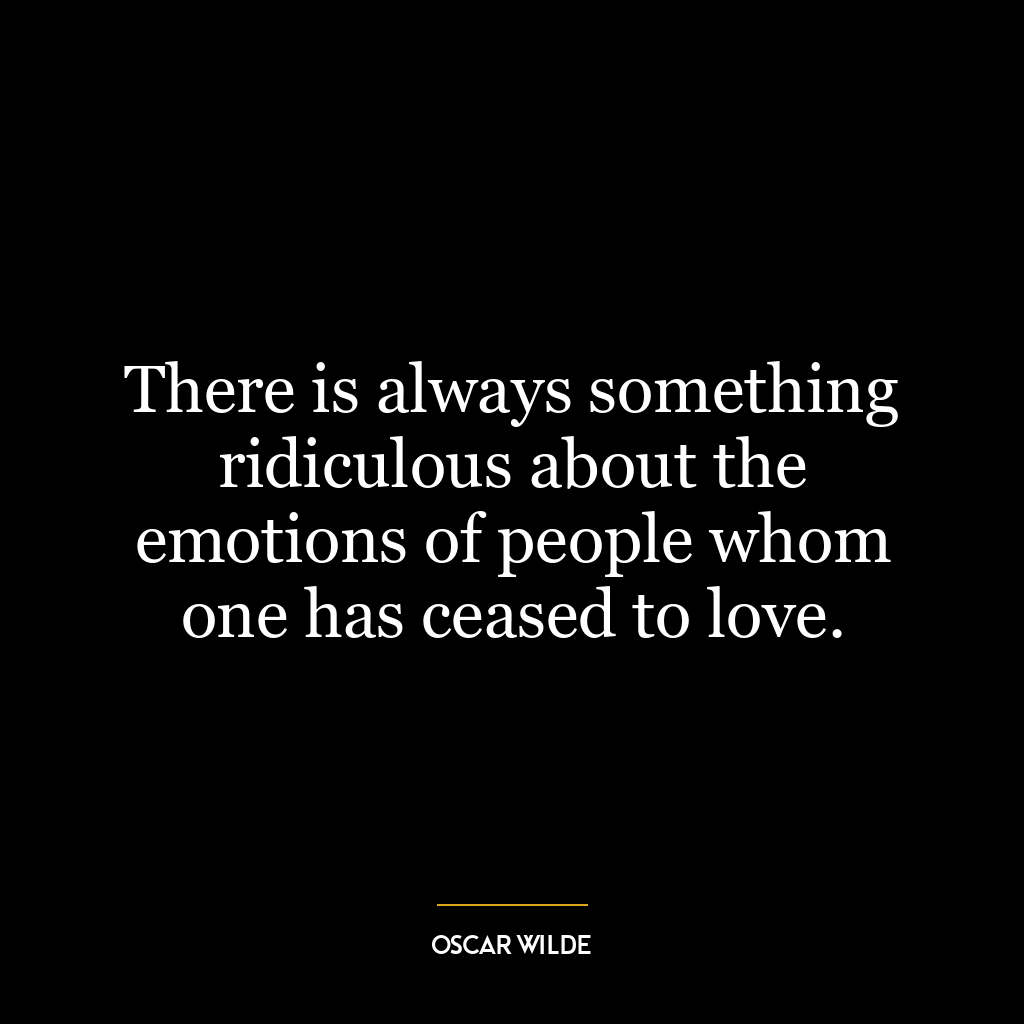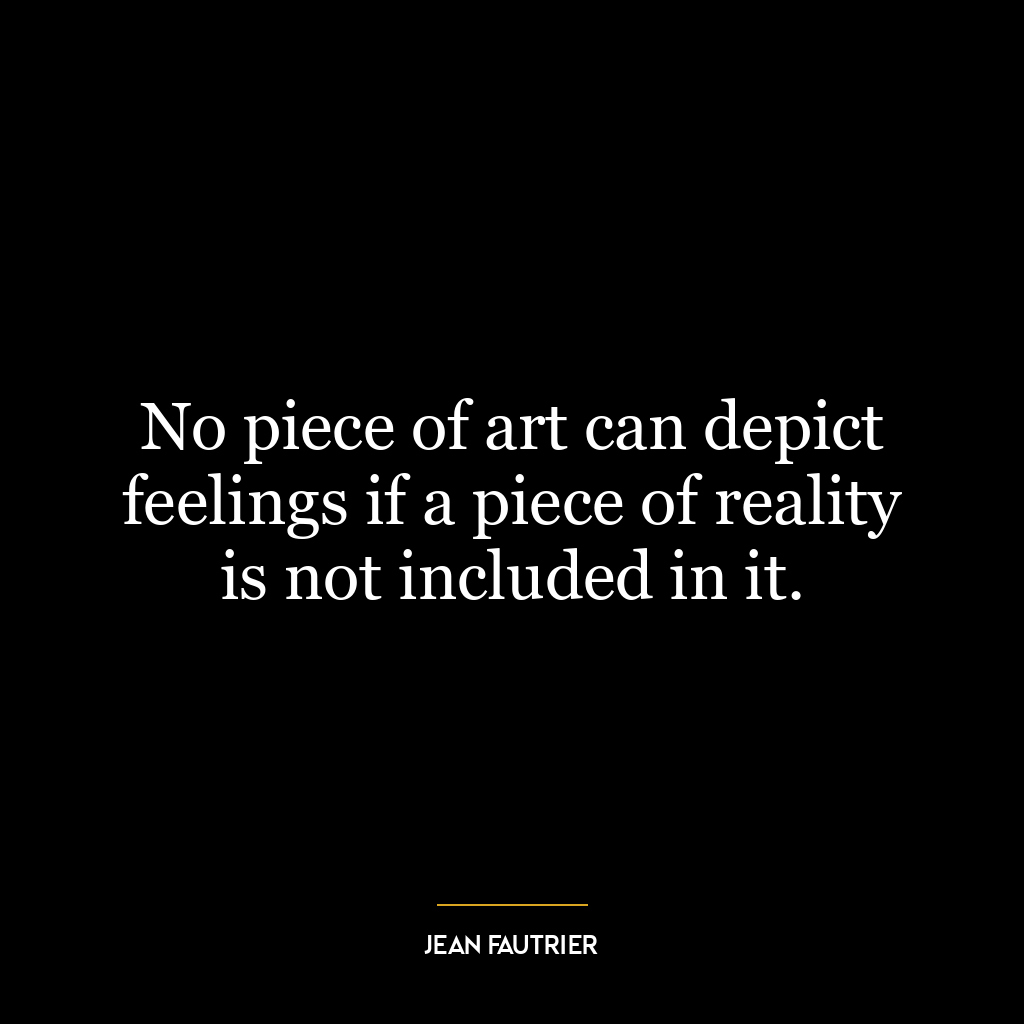There is always something ridiculous about the emotions of people whom one has ceased to love.
The quote suggests the idea of emotional distance and its impact on perception. Once we stop loving someone, our emotional investment in them changes, and so does our perception of their emotional expressions. Emotions that may have once seemed profound or endearing can suddenly appear absurd or exaggerated. This shift in perception is not necessarily due to any change in the person we once loved, but rather, it’s a reflection of our changed feelings towards them.
The quote also points to the subjectivity of emotions and how they are perceived differently depending on our relationship with the person expressing them. It’s a commentary on the transient nature of emotions and relationships, and how one’s feelings can drastically alter their perception of another’s emotional reality.
In today’s world, this idea can be applied in various contexts. For instance, in the digital age, where social media platforms allow us to keep tabs on people we may have ceased to have real-life interactions with, this concept is particularly resonant. Seeing an ex-partner’s expressions of joy, sadness, or anger on social media might seem overly dramatic or ridiculous, simply because we have emotionally distanced ourselves from them.
In terms of personal development, this quote can serve as a reminder of the importance of empathy and understanding. Just because we might find someone’s emotions ridiculous, it doesn’t mean those feelings are not valid or deeply felt. It’s crucial to remember that our perceptions are often clouded by our personal feelings and biases, and what might seem ridiculous to us could be genuinely significant to someone else.
This quote also speaks to the importance of emotional intelligence. Understanding that our perceptions of others’ emotions are subjective can help us navigate relationships more effectively and foster better communication and understanding.








